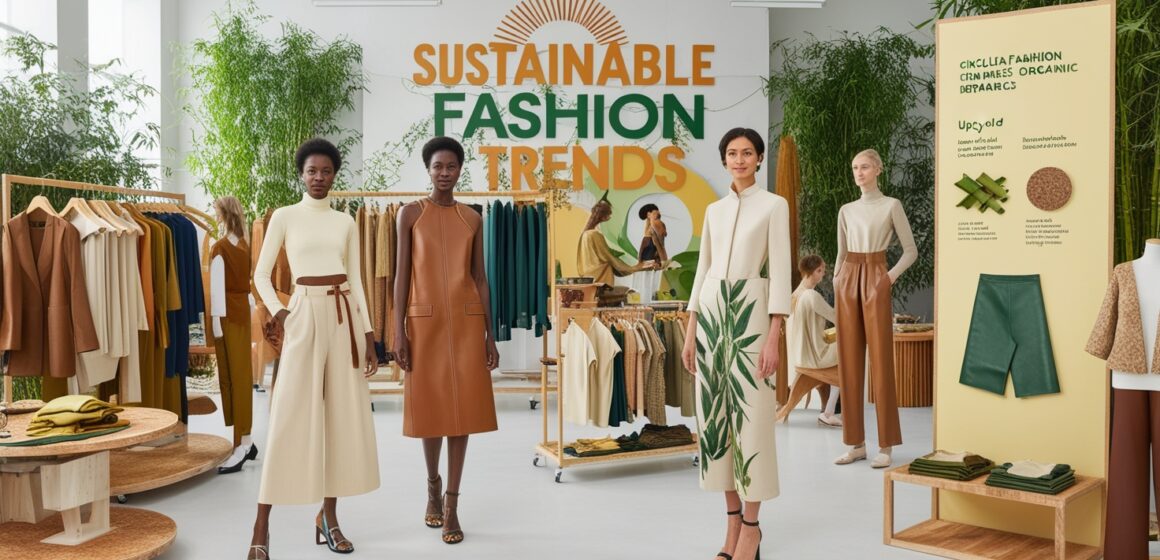Sustainable fashion is no longer just a niche concept; it has become a powerful movement influencing how consumers shop and how businesses operate. With growing awareness about the environmental impact of the fashion industry, entrepreneurs are reimagining how clothing is designed, produced, and consumed. Here’s a closer look at the trends shaping sustainable fashion and the lessons entrepreneurs can take away to build ethical and profitable brands.
The Case for Sustainable Fashion
The fashion industry is one of the largest polluters in the world, contributing to issues like water pollution, excessive waste, and greenhouse gas emissions. The rise of fast fashion has only exacerbated these problems, with cheap, disposable clothing filling landfills at alarming rates.
However, consumer sentiment is shifting. Today’s shoppers are more conscious of their environmental footprint, with many prioritizing quality, longevity, and ethical practices over cheap, mass-produced goods. For entrepreneurs, this change in mindset presents an opportunity to innovate and lead the charge toward a more sustainable future.
Emerging Trends in Sustainable Fashion
- Circular Fashion Circular fashion emphasizes designing clothes with their entire lifecycle in mind. This includes creating garments that are durable, repairable, and recyclable, reducing the need for constant production of new materials. Brands embracing this trend are launching take-back programs, upcycling initiatives, and products made from biodegradable materials.
- Eco-Friendly Materials Innovations in fabric technology are driving the use of eco-friendly materials like organic cotton, bamboo, hemp, and recycled polyester. Some companies are even exploring lab-grown leather and fabrics made from agricultural waste, such as pineapple leaves or mushroom roots.
- Slow Fashion Unlike fast fashion, slow fashion encourages mindful consumption by focusing on quality over quantity. This trend promotes timeless designs, limited collections, and small-batch production, which minimize waste and encourage thoughtful purchases.
- Transparency and Ethical Practices Consumers are increasingly demanding transparency in supply chains. Brands that share information about their sourcing, labor practices, and environmental impact are winning consumer trust. Ethical practices, such as fair wages and safe working conditions, are also becoming non-negotiables for conscious buyers.
- Secondhand and Rental Models The secondhand market is booming, with platforms like ThredUp and Poshmark gaining popularity. Similarly, rental services like Rent the Runway and Le Tote offer consumers access to high-quality garments without the commitment of ownership. These models align with the values of sustainability and affordability.
What Entrepreneurs Can Learn
1. Prioritize Innovation
Entrepreneurs in the fashion space must stay ahead of the curve by investing in sustainable materials and exploring new business models. Innovation in fabric technology, such as bio-based or recycled materials, can set brands apart from competitors.
2. Build Transparency
Openly sharing details about production processes, sourcing, and labor practices builds trust and loyalty among consumers. Consider using blockchain technology to provide verifiable transparency in your supply chain.
3. Adopt a Circular Approach
Embracing the principles of a circular economy can minimize waste and maximize resource efficiency. Offer services like garment repair, recycling programs, or even subscription-based models to keep customers engaged while reducing environmental impact.
4. Educate Consumers
Many consumers want to make sustainable choices but lack the knowledge to do so. Educate your audience through content marketing, highlighting the benefits of your practices and products. For instance, showcase the environmental savings from buying recycled or upcycled items.
5. Scale Responsibly
Growth doesn’t have to come at the expense of sustainability. Scale your business thoughtfully by focusing on quality, long-term partnerships, and technology that supports efficiency and eco-friendly practices.
Challenges to Overcome
Transitioning to sustainable fashion isn’t without its challenges. Higher production costs, sourcing limitations, and consumer price sensitivity are common hurdles. However, as demand grows and sustainable technologies advance, these barriers are gradually diminishing. Entrepreneurs who remain committed to ethical practices can find innovative solutions to these challenges.
Conclusion
Sustainable fashion is not just a trend; it is the future of the industry. Entrepreneurs have an opportunity to reshape how fashion operates by embracing practices that are both ethical and profitable. By staying attuned to emerging trends like circular fashion, transparency, and slow fashion, businesses can meet consumer expectations while contributing to a healthier planet. Now is the time for forward-thinking entrepreneurs to lead the charge and redefine the meaning of success in the fashion world.




Leave a Reply